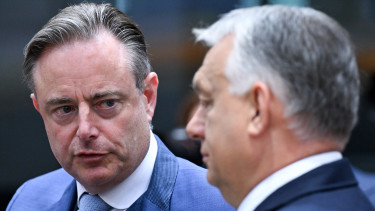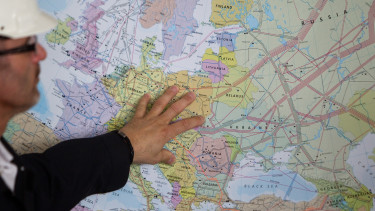What would the EU gain or lose by admitting Ukraine?

While the political systems of the countries that joined the EU during the first enlargement were largely compatible with those of the founding members, eight of the ten new member states that joined in 2004, as well as all those that have joined since, came from a completely different background.
They were ex-communist countries, free from the repressive influence of the Soviet Union. Despite almost fifteen years having passed since the change in their systems and their accession, there have been instances of backsliding during the last 21 years of membership.
The Copenhagen criteria, infringement procedures and Article 7 were intended to manage these risks, and the rule of law mechanism has been trying to do so since its inception.
The path to EU membership is not a short one. North Macedonia has been a candidate country since 2005, but negotiations only began in 2022. Meanwhile, negotiations with Serbia began in 2012 and have not yet concluded. Negotiations with Croatia lasted six years.
We should remember that the 'big bang' in 2004 (and its aftershocks in 2007 and 2013) was not the first time that countries emerging from dictatorships had joined the Union, nor was it the first time that the process had been difficult. Greece, for example, negotiated for six years. Spain and Portugal submitted their application one year after Greece in 1977, but did not join until 1986. One reason for the delay was Greece, which, having joined in 1981, made its agreement to the accession conditional on the European Council accepting the Integrated Mediterranean Programme, a support measure for disadvantaged regions. Greece was concerned that less developed new members would siphon support funds from them.
This fear is echoed by some Eastern European countries with regard to Ukraine joining.
For political reasons, although Romania and Bulgaria have been members since 2007, they only joined the Schengen area last year. The latter, although political, hints at how economic risks were managed.
Before 2004, the two most important concerns were the financial burden of supporting the agriculture of the new members and the influx of cheap labour from them. Therefore, in the first year, only 25% of the calculated agricultural support payments would have been paid to the new members (this was later increased to 55% for Hungary), with the full amount being reached gradually over six to nine years. In exchange, the free purchase of agricultural land in the new member states by citizens and companies of the 'old 15' was prohibited – originally until 2010, then prolonged to 2013 to allow time for land prices to adjust to the EU level in the newcomers. Member states were also granted a seven-year grace period to allow for the free movement of workers.
The latter risk did not seem to concern many countries: some lifted the restrictions immediately, while others did so gradually before the seven-year period had expired.
How big are the risks in the case of Ukraine?
The country's population currently represents 10% of the EU's population. Many people have left the country because of the war, and if they do not return, this figure may be even smaller in the future. The ten countries that joined in 2004 accounted for 20% of the EU's population. One political difference is that, while the ten countries may have different views on certain issues, Ukraine will speak with one voice. Nevertheless, the voting rules in the Council have had to be modified with almost every enlargement so far, and this will be the case with every further enlargement.
There is much talk about changing voting rules and the composition of the Commission anyway.
In fact, during the 1995 enlargement when Austria, Sweden and Finland joined, the larger member states lost their right to appoint two commissioners each.
Ukraine is also competing with the Western Balkans for membership, but overall these countries have half as many citizens as Ukraine and are divided on a number of issues. Their economies and political readiness for membership vary, but they all have a long way to go.
It remains to be seen whether member states will decide on a 'big bang' approach like last time or take these countries on board gradually.
Constant flux of new members when taking in more mature earlycomers can also pose problems. However, there is one possible solution: set up mechanisms suitable for complete enlargement from the outset, but allow new members to join according to their readiness, introducing changes as they join. If the voting rules and governance system of the union are adjusted appropriately, the new members' leverage will not be disruptive.
What about the impact of the EU budget?
The Ukrainian economy is weak and has been further weakened by the war. Its GDP is low, at less than half of the EU average in terms of GDP per capita, despite having a population of only ten million. Ukraine is far from being able to comply with the political, legal and economic requirements of membership (mainly in terms of freedom of the market and of competition).
The last Commission report listed many areas in need of improvement, such as legal harmonisation, anti-corruption measures, business competitiveness, competition regulation, and compliance with EU product, environmental, and safety rules, as well as personal freedoms and consumer protection.
This is a tall order, and some of these tasks border on the impossible during wartime.
Many analysts consider the target date of 2030 to be unrealistic. While the Union is preparing for enlargement, the question of whether the Western Balkan countries will join beforehand remains unanswered. Nevertheless, there is ample time to prepare and adjust the rules in anticipation of their accession, whether gradual or all at once.
While the EU's average GDP per capita will certainly decrease with Ukraine's accession, it will not fall so much that many new member states will rise above the average.
Consequently, they will retain their entitlement to cohesion funds. According to the calculations of the Bruegel think tank, some regions may “graduate” from “less developed” to “transition regions”.
However, increasing the budget and finding new own resources for it was not the first issue raised in the context of Ukraine – or even enlargement in general. Of course, if countries with a low GDP per capita join, maintaining the same proportion of the EU budget to EU GDP would mean a relative decrease in the budgetary resources available to the union.
Without an increase in the budget, the funds received by the new member will result in existing members receiving fewer funds. However, it should be noted that Ukraine already receives tens of billions of euros, and
it is also common knowledge that EU money flows to candidate countries even before membership negotiations begin.
Therefore, accession will not result in an immediate financial shock. The difference is that support for Ukraine currently comes mainly from outside the budget.
Losses and gains
The question is how much the cost will be and what will be gained in return. Extrapolating the present situation may exaggerate the amounts redirected, as when used properly, the funds enable the new members to catch up, thereby diminishing the differences. Also, a significant proportion of structural funds are spent in other member states rather than in the recipient state. Furthermore, a new market is opening up for existing members, as being within the EU enables much better market access.
A 2017 study by IMAPP and the Institute for Structural Research (IBS), commissioned by the Polish Ministry of Economic Development, investigated the indirect benefits to former members of cohesion programmes, focusing only on the V4 countries: Poland, the Czech Republic, Slovakia, and Hungary.
The benefits to the EU15 were found to be about 80% of their contribution.
A significant proportion of these benefits came from exports to these countries (80%), not just from spending the funds, but also from the impact of opening up the market and the increase in demand due to economic development.
Companies with subsidiaries in these states receive 20% of EU funding, including improvements to infrastructure and the economic environment. Another study shows smaller numbers, but only focuses on spillovers, i.e. improvements to the economic environment. The result is smaller: only 21%, two thirds of which benefited EU member states.
There is no question that Ukraine will absorb more than its fair share of the EU population — i.e. 10% of the funds — but it is difficult to say exactly how much.
There are different estimates, but the problem is that no one knows how these funds will be distributed or what Ukraine's share of the agricultural funds will be, as this depends heavily on how the calculation methods are modified.
Given that the country's GDP is much lower than that of existing member states,
the per capita amount of structural funds received by the current top recipients could exceed 10% of GDP.
Even a sum much smaller than this would be higher than that currently provided to any member state and could still have a significant impact on Ukraine, while also resulting in a smaller decrease in funds for existing beneficiaries.
One of the most reliable estimates is that of Bruegel, but it is also based on current regulations and the 2021–2027 budget. However, this would infringe the current rule capping structural fund receipts at 2.3% of GDP. Based on this cap, the amount 'lost' by the old beneficiaries is estimated at 24 billion euros. This limit could be raised, although any increase would certainly be limited to what other beneficiary countries are willing to accept.
Ukraine possesses 10% of the EU's agricultural land, so the agricultural budget would be burdened. However,
an annual contribution of EUR 14 billion could be expected, and the net effect is calculated by Bruegel to be EUR 136 billion, i.e. 0.13% of EU GDP.
This would still represent a significant proportion of the EU budget, given that the EU budget is only about 1% of GDP. All of these figures are based on the long-term budgetary period between 2021 and 2027.
As several net beneficiaries had already faced significant cuts to their share of EU funds, the additional reductions would not be significant in comparison. Bruegel also estimates that the net beneficiaries will continue to receive funding. Of course, the affected countries will look for compensation once they know the impact. As well as the measures applied during previous enlargements, further mitigation measures can be expected.
Overall, gradually increasing agricultural funds and applying a cap can ease the budgetary strain.
However, increasing the budget, finding new own resources and changing the way costs are calculated could also be a long-term solution to mitigating the impact on other member states.
Fears of uncontrolled migration and the dumping of mainly agricultural products can be alleviated by delaying the introduction of free movement — not the first time this has happened — and by enforcing EU environmental, product quality and safety rules. The EU is just reintroducing quotas and caps on Ukrainian imports, which will not be sustainable after accession, but could be lifted gradually.
Although some try to scare Europe away, the Eurobazooka survey in March 2025 found that, of the nine biggest EU countries, only in France was less than 50% in favour of Ukraine becoming a member of the EU by 2030. The Republican Institute also found that, despite government propaganda to the contrary, a small majority of Hungarians favour Ukraine's membership.
Although the actual joining date is likely to be later,
European politicians would be better advised to lobby for measures that will ensure the success of enlargement, rather than trying to prevent it.
This article reflects the views of the author, which do not necessarily reflect those of the Portfolio editorial team.
Cover image (for illustration purposes only): Getty Images









